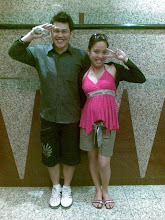Movie Trailer: The Time Traveller's Wife Eric Bana and Rachel McAdams star in 'The Time Traveler's Wife,' a romantic drama about a Chicago librarian with a gene that causes him to involuntarily time travel, and the complications it creates for his marriage.
The Time Traveler's Wife
(out of 4)
Starring Rachel McAdams and Eric Bana. Directed by Robert Schwentke. 107 minutes. At major theatres. 14A
The Time Traveler's Wife belongs to the realm of romantic fiction where hoochie-coochie meets hocus-pocus.
Like Twilight and The Curious Case of Benjamin Button, it presents a couple struck by sighs but stymied by science. There's a familiar drill: boy meets girl; girl flirts with boy; boy turns into vampire or infant or vanishing act.
The latter phenomenon occurs here, in this modestly appealing screen adaptation by Robert Schwentke (Flightplan) of the best-selling 2003 novel by Audrey Niffenegger.
Something like Groundhog Day as penned by Henry James, the time-travelling conceit as presented onscreen (it worked better in the book) makes for an awkward hybrid.
It's a goofy premise built more for comedy than drama, especially when the clock-shocking Romeo is constantly arriving in public places as naked as a jaybird.
Eric Bana is Henry, a Chicagoan we meet at age 6 as he's being magically transported away from a fateful car accident. As young Henry shivers on the snowy roadside, he's consoled by an older version of himself, who suddenly appears to tell him that everything's going to be all right.
It's the first instance, and definitely not the last, where The Time Traveler's Wife violates the standard sci-fi laws of time travel. To wit: you can't talk to your younger or older self (the space-time continuum would explode, silly); you can't alter the past or future; and you mustn't tell people about how their lives are going to change.
Henry does all these things, even while explaining why he can't or won't do these things, which makes for much confusion.
More for the audience than for Clare (Rachel McAdams), who first meets Henry as a young girl, while she's gambolling on a field straight out of a Monet painting while Henry is hiding his naked form in shrubbery.
As both child and adult, Clare accepts rather blithely, and occasionally resentfully, that Henry has a mysterious ailment called "Chrono Displacement" that causes him to disappear for days or weeks at a time while he skips across the decades (mostly the 1970s through 2000s.)
"Yeah, it's a problem," she says.
Not an insurmountable one, however, as the couple manage to fall in love regardless of Henry's habit of not only vamoosing, but also reappearing as younger and older versions of himself (but without the Benjamin Button extremes.) It makes for a baffling wedding photo when the groom looks to be first in his early 20s and then his late 40s and back again.
Others get into Henry's time-shuttling groove: their close pal Gomez (Ron Livingston), Henry's dad Richard (Arliss Howard) and obliging egghead Dr. Kendrick (Stephen Tobolowsky), who coins the "chrono impairment" diagnosis.
It's amazing what humans can get used to, but there's a downside to this familiarity. The Time Traveler's Wife settles into a dull pattern of Henry's comings and goings, with no rhyme or reason to them. Could he alter his flight plan? Maybe, if he stops drinking, starts singing or stops being stressed. Or maybe not.
The whole thing would amount to little more than a (vanishing) hill of beans where it not for the strong connections between Bana and McAdams, who rise above the shaky material with performances worthy of the Oscar contender this movie aches to be (that Mychael Danna score is certainly gorgeous).
What's missing from the film is any real sense of purpose, apart from Henry's and Clare's squabbling efforts to have a child in the here and now, and not the there and then (Ally McBeal's phantom dancing fetus comes to mind).
Screenwriter Bruce Joel Rubin also penned Ghost, which managed to incorporate a genuinely exciting drama in the context of a supernatural love saga. Was similar inspiration lacking here, or was he required to stick too closely to the source novel?
The novel at least provided regular updates as to the years and the changing ages of Henry and Clare, signposts that are sorely lacking in the film.
If you can get past the calendar gymnastics, The Time Traveler's Wife plays as an affecting allegory of love that persists even when the lover is gone – as in really gone. It's also gorgeous to look at; Toronto makes a great Chicago.
And it certainly fits the current mood of moviegoers. Today's romancers seem to want a little conjuring with their canoodling. Is real-world love simply too mundane?
**XOXO attached**



